Could you first introduce yourself to the reader?
I’m Kirsteen Davidson Kelly, Creative Learning Director for the Scottish Chamber Orchestra, where I’ve been for four years.
What does your job involve? Give us the typical outline of a day?
The Scottish Chamber Orchestra is a national performing company, core funded by the Scottish Government. I’m a member of the senior management team and head up a team of four, designing and delivering a year-round programme of projects and events across Scotland. I meet regularly with SCO colleagues to discuss strategy, programme events, develop digital content, work on funding bids, and so on. I collaborate with all sorts of external partners including researchers, other arts organisations and festivals, NHS providers, schools, universities and colleges.
In the past week, for example, I have met with a workshop leader and a colleague from one of the London orchestras to discuss a new project for young people with mental health problems; helped to write a grant proposal; given a talk to university students; worked with a storyteller and an SCO musician to develop a musical storytelling session; welcomed a new intern into our team; met with a video director to discuss online content for projects later in the year; and put the finishing touches to the new SCO String Academy, which is about to launch.
What’s great about your job?
My job is incredibly varied and (of course) really creative. I love putting together new projects and great teams, and really enjoy the development process – coming up with ideas, thinking about artistic and educational content, trying to understand how best to work with a particular group of participants, and then researching and refining these ideas. At the other end of the process I see the impact of the work on the people who take part, which can be incredibly emotional and rewarding.
What are the bits you don’t like or find challenging?
We have endless ideas and not enough time to execute them all!
Tell us about some of the projects Scottish Chamber Orchestra’s Creative Learning department is currently undertaking?
One of the projects we are really proud of, and which is constantly evolving with the help of our many local collaborators, is the SCO’s three year Community Residency in Wester Hailes, Edinburgh - a programme of free creative music workshops and performances which aims to embed the SCO in the life of the community. Regular creative projects take place at the secondary school, its feeder primaries and their nurseries. Family events and creative projects for adults take place in partnership with WHALE Arts Centre, and the programme includes trips to SCO concerts in the city centre. We’ve devised some unique creative projects as part of this programme, including Dots & Lines cross-artform workshops for nursery children, and Soundmoves music and movement workshops for primary schools. In June we’ll present a professional performance of work created by children from three primary schools - ‘Soundmoves: Music, Movement and Movies’, in partnership with the Edinburgh International Film Festival and Edinburgh International Festival.
Can you tell us about ReConnect, and why SCO decided to run the programme?
SCO ReConnect is a programme of interactive, creative music workshops for people living with dementia, which began in 2013 in partnership with the University of Edinburgh and NHS Lothian. Each year we run a series of hospital-based music sessions in which patients are invited to sing, play instruments, improvise and listen. The workshop lasts for up to an hour and is led by a specialist workshop leader and two SCO musicians.
ReConnect is a project that has become very dear to the SCO because it give us an opportunity to make a real difference at a difficult time in people’s lives. The musicians who take part in the programme work with specialist musicians to develop the skills required – improvising, playing familiar tunes while being aware of and responding to minute changes in a patients’ mood or movement, and being able to relate to individuals as well as the whole group simultaneously. The whole team spends a lot of time reflecting on and refining the process with the support of our NHS colleagues, who take part in all the workshops.
We’ve seen in the hospital workshops how live music can light up patients who are otherwise hard to reach, and how it can enable people reconnect with each other. We’re now starting to bring the project into other settings so that people living with or affected by dementia in the community can join us, and we’re delighted that our first community ReConnect workshop has taken place this week at St Cecilia’s Hall, Edinburgh, in partnership with the University of Edinburgh’s Museums’ Services.
Why do you think it’s important for the SCO to make a contribution off as well as on the concert platform, working in schools, universities, hospitals, care homes and community centres?
It’s vital for the orchestra to be an integral part of the community in which it is based. The SCO’s community extends across Scotland, and we work with partners all over the country to make sure that we connect with the work they are doing at a local level. We’re working with Caithness Music to invite local children and adults to come and play with musicians from the Scottish Chamber Orchestra at an event that features a specially commissioned piece by local composer Katrina Gordon.
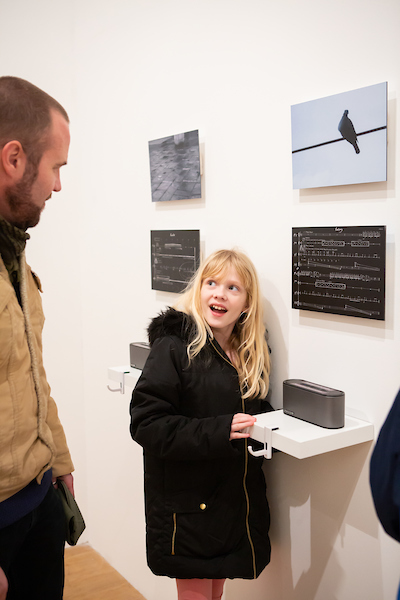 © Sally Jubb Photography Essentially it’s very simple: everyone gains when we share music making. Musicians gain from knowing that they have made a difference to a patient on a dementia ward and her son, who hadn’t seen her smile for two years before they took part in a ReConnect workshop. Musicians, family and teachers gain from seeing a child with complex problems who struggles to remain in school daring to sing their own composition solo, accompanied by SCO musicians, in a public concert. Participants gain from the opportunity to work with brilliant musicians and practitioners, not just from their expertise but just as importantly from the ethos of inclusiveness and respect that underpins all our projects.
© Sally Jubb Photography Essentially it’s very simple: everyone gains when we share music making. Musicians gain from knowing that they have made a difference to a patient on a dementia ward and her son, who hadn’t seen her smile for two years before they took part in a ReConnect workshop. Musicians, family and teachers gain from seeing a child with complex problems who struggles to remain in school daring to sing their own composition solo, accompanied by SCO musicians, in a public concert. Participants gain from the opportunity to work with brilliant musicians and practitioners, not just from their expertise but just as importantly from the ethos of inclusiveness and respect that underpins all our projects.
What was your career path into this job? Have you also worked outside the arts?
I studied music at the University of Edinburgh and when I graduated, friends and I co-founded Piano Circus, a six piano ensemble which we formed initially in order to play Steve Reich’s piece ‘Six Pianos’ at the City Art Centre during the Edinburgh Fringe in 1989. I worked with the group for 13 years, performing internationally, recording, and commissioning innovative new works for this unusual line up.
I co-directed the group’s international education programme, and when I left Piano Circus I continued to run creative learning projects in collaboration with a variety of organisations, promoting creative music-making amongst diverse communities, including young people at risk of offending and people with physical and/or learning disabilities. For example I directed a series of music video projects for London schools as part of the Arts Council of England Creative Partnerships scheme, and ran music technology projects for schools and youth groups with a particular interest in involving girls in music production.
I also carried on performing and teaching piano and musicianship to people of all ages, from beginners to diploma standard, until I took up my current role.
What are the highlights of your career to date?
There are lots! Just a couple of highlights from my time with Piano Circus were performing and recording Stravinsky's Les Noces in Berlin, conducted by Vladimir Ashkenazy, and collaborating with a Javanese gamelan group in Indonesia. More recently I fulfilled my ambition to perform in the Scottish landscape, broadcasting a solo piano ‘Remote Performance’ from Glen Nevis, commissioned as part of a collaboration between artists London Fieldworks and ResonanceFM.
Travelling and performing can be really exciting, but I find directing creative learning projects just as rewarding, maybe even more so. There are so many highlights I could mention, so I’ll pick the most recent: Incredible Distance – an audio-visual installation loosely describing 24 hours in the lives of several residents from Wester Hailes. Featuring original music by composer Suzanne Parry, and a beautiful graphic score and film, this powerful collaborative work was presented at both the Royal Scottish Academy and Fruitmarket Galleries as well as Whale Arts Centre in Wester Hailes. The project had a real impact, summed up beautifully by one of the participants: “your input and injection into our community really does have a positive effect. It makes us look at ourselves in a different way. It opens up new avenues for us to express ourselves and I feel that we are blossoming as individuals!”
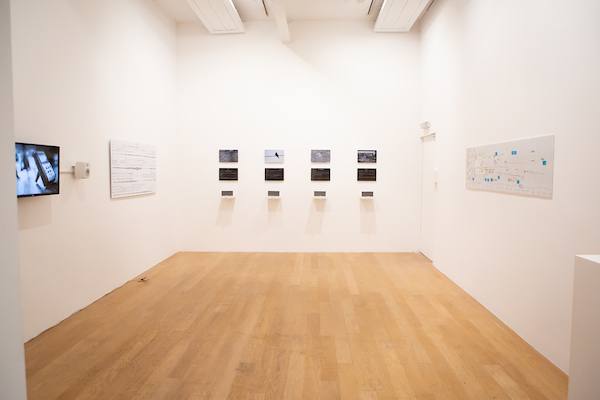 © Sally Jubb Photography
© Sally Jubb Photography
Can you describe what the biggest challenge has been in your career so far? How did you overcome it?
Having left London for rural Scotland, it was a challenge to make a living as a freelance musician while bringing up two young children. I didn’t have much of a network and felt quite isolated until I returned to the University of Edinburgh to study for a PhD at the Institute for Music in Human and Social Development (IMHSD). I loved the research and met all sorts of wonderful people at the IMHSD, some of whom I now collaborate with – for example, to evaluate the ReConnect programme, and to devise and deliver school projects.
Have you noticed any changes in the industry? If so, what?
Technology has obviously changed some of the ways in which we work, but creativity is always at the heart of the music industry – and is more important than ever. A recent report published by the World Economic Forum at Davos pinpointed an interesting shift: creativity is predicted to move from tenth position in the Top 10 skills required by the 21st century workforce to third.
You’ve been granted the ability to send a message to 16-year-old you. What do you say?
Don’t worry about not having a plan!
Do you have any advice for young people interested in doing your kind of job?
Keep learning. Look for opportunities and make the most of them to develop your networks, options, confidence in your own creativity and practical skills.

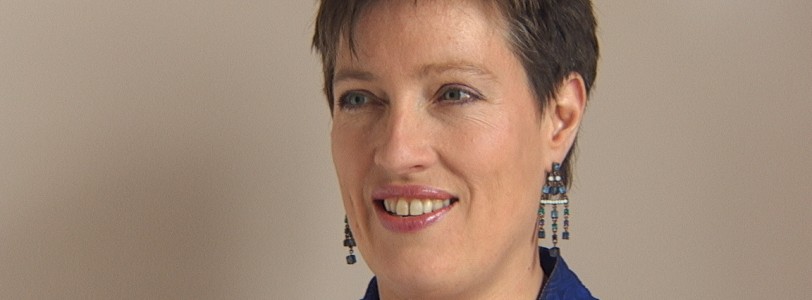




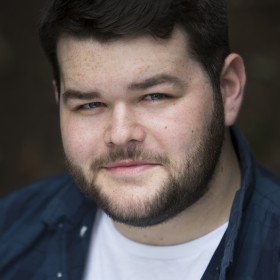


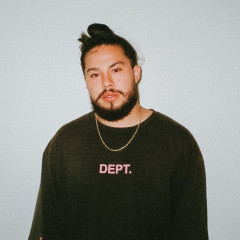
Would love to see more of these!